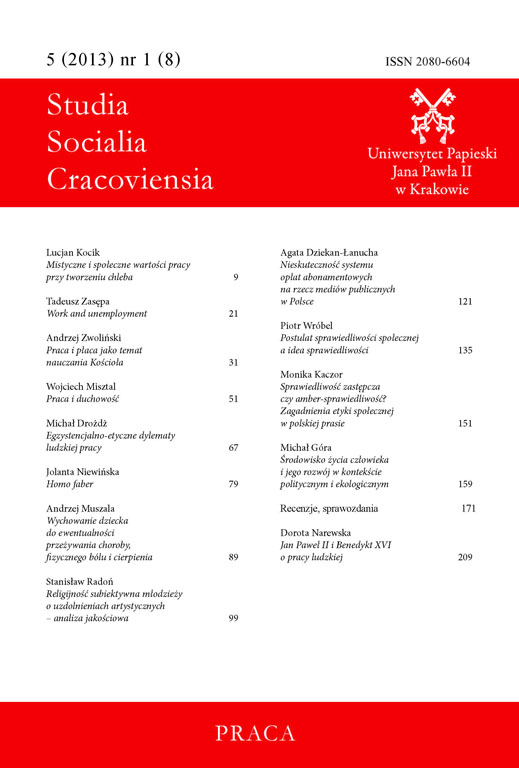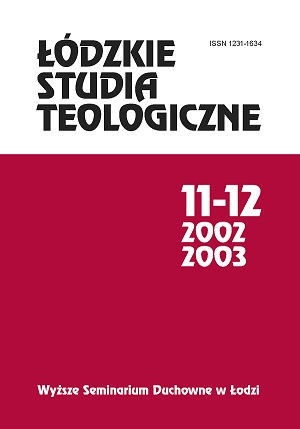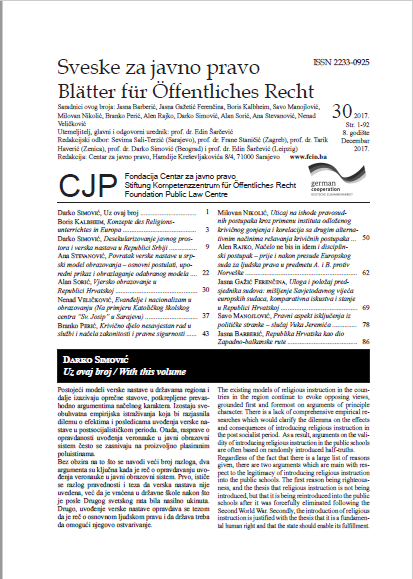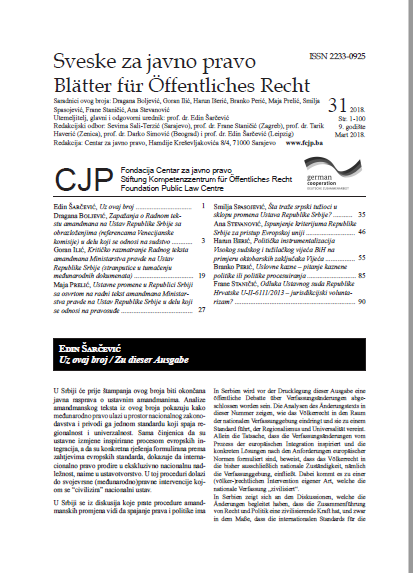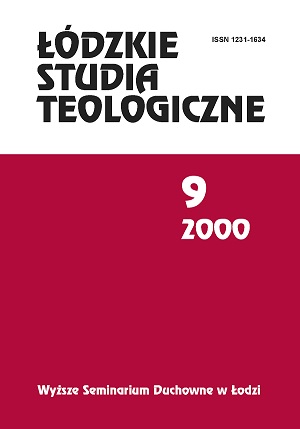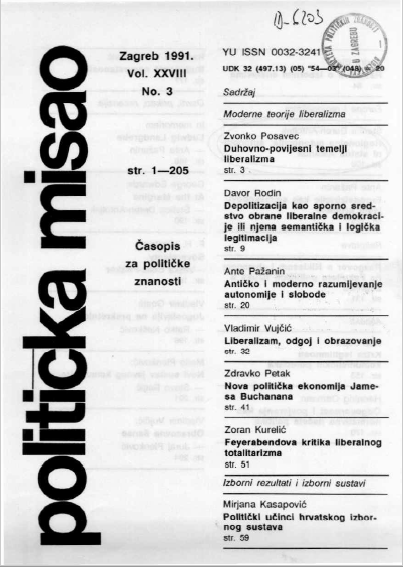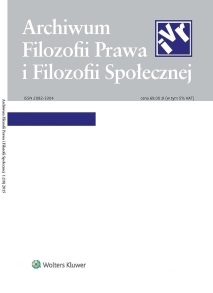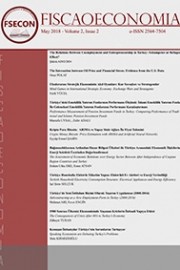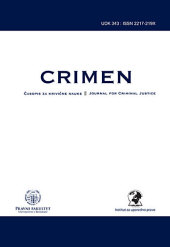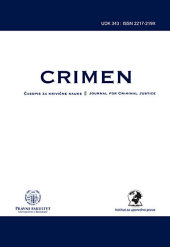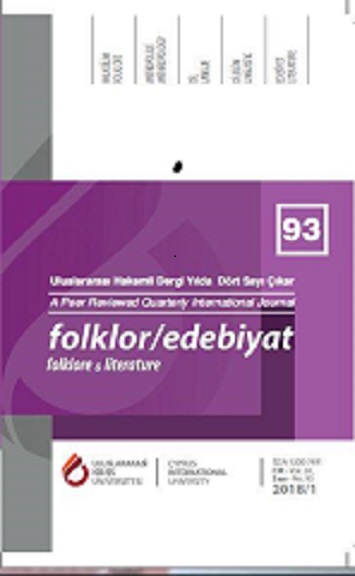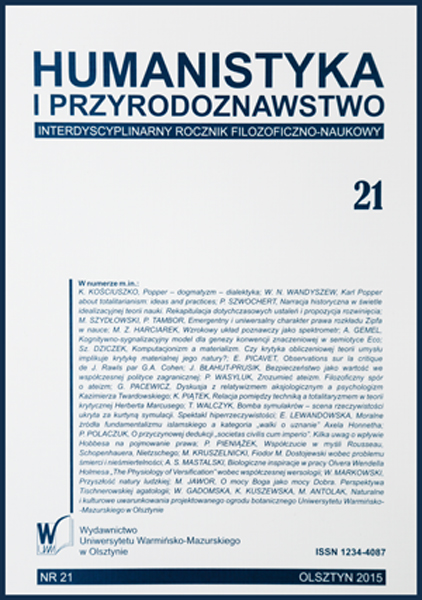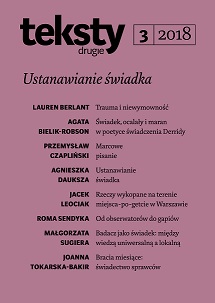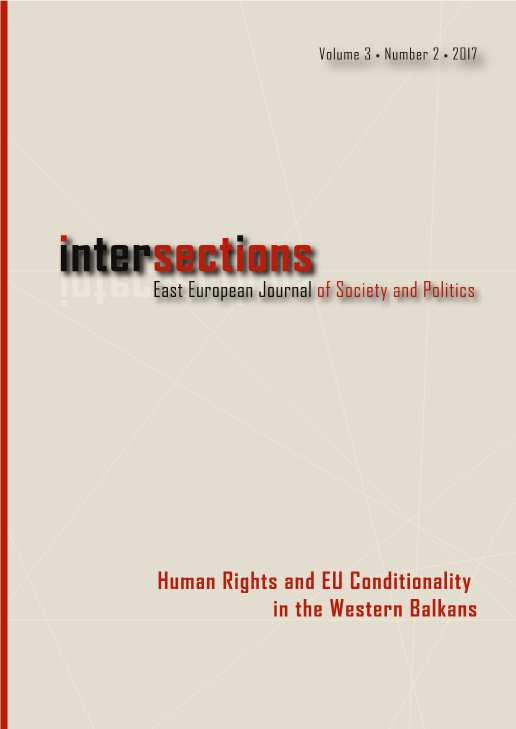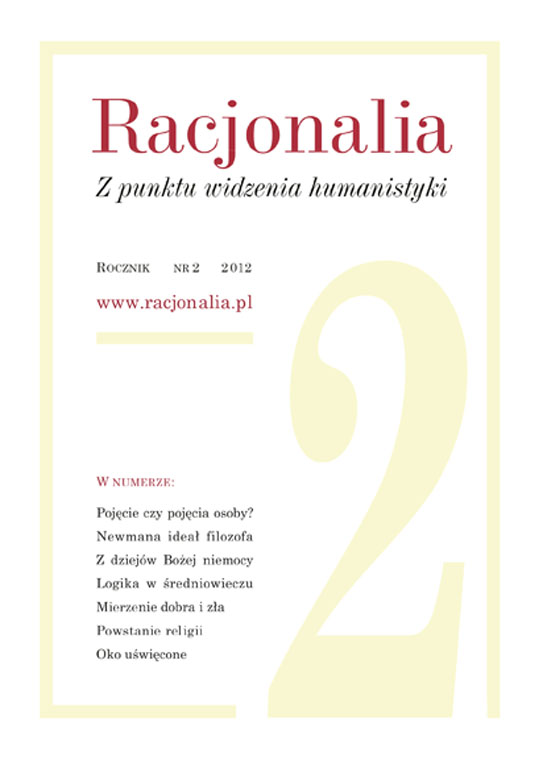
Filozofia wyboru Sørena Kierkegaarda i Barucha Spinozy a teoria prawa
Lawyers who deal with applying law in practice very often are not aware of many hidden suppositions, which justify the existence of law and make it reasonable. It is obvious that in discovering them philosophy can be helpful. The main part of this article is the analysis of the thought of two European philosophers: S. Kierkegaard and B. Spinoza. The important field of their interest was a philosophy of human existence. Its significant element is liberty. The attitude to it creates their visions of being. Kierkegaard is well known as the author of „three periods of human life (aesthetically, ethical and religious)” concept. In his opinion the necessary element of any progress in existence is taking the plunge and changing the way of life. It is possible by dint of liberty. A totally different vision can be found in Spinoza „Ethics more Geo-metric”. The author wants to convince us that the potentiality of making decisions is only an illusion.The possible consequences of the acceptance of such a vision were shown very briefly; the goal of the paper is also to demonstrate that since the beginning of our civilization we have had to assume a concept similar to Kierkegaard's.
More...
